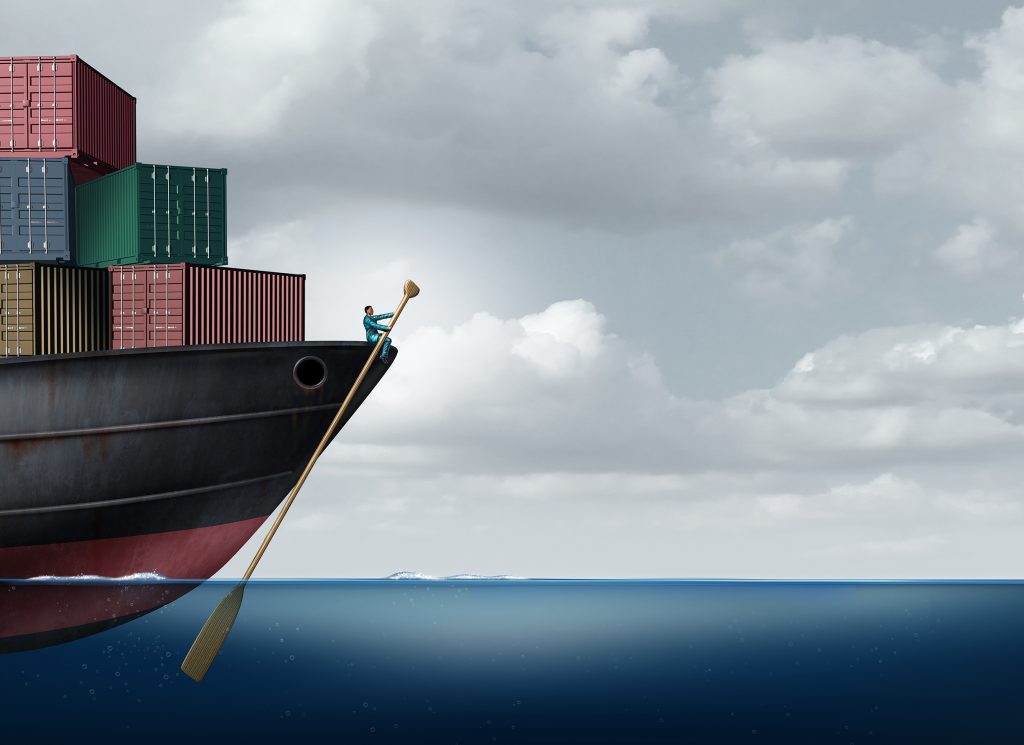As the per-unit cost of operations increases many lines are forced to blank sailings which has hit their bottom line real hard. The Government and Terminal Operators therefore need to actively consider reduction in Vessel Related Costs
The Covid-19 crisis has brought with itself a new set of challenges both from the health perspective as well as from the business angle. The Shipping Lines, who are well sensitized towards this situation, have taken steps to ease the pain for the trade as far as possible.
Many lines have independently offered additional free days on container detention, despite most privately operated terminals not offering corresponding free time to the Lines on Port Ground Rent. It is another matter though that this facility has proved to be counterproductive with most of the consignees using the containers for storage of cargo in view of the factories being shut. This has resulted in acute congestion at the various terminals, CFSs and ICDs across the country. Ports like Hazira for instance, have been forced to close their gates for imports as well as exports due to the port being completely congested. The CFSs around Nhava Sheva have seen evacuation of just 22,000 import teus with about another 100,000 teus lying uncleared at the CFSs. This is proving to be detrimental to the country’s exports as ports, CFSs & ICDs have little space left to handle export volumes. The equipment of the lines too is blocked with uncleared import cargo thereby leaving little in hand to cater to the export shipments, as required.
Be that as it may, the lines still continue to service the trade, although the vessels essentially call just to discharge import loads and sail out light in view of negligible exports bookings. The export volumes have significantly shrunk due to the closure of the factories in India in view of the current lock-down, multiple bottlenecks along the logistics supply chain and the limited demand from the overseas markets on account of the global pandemic. This has increased the per-unit cost of operations for the vessels calling at Indian ports. Some of the lines have therefore been forced to blank their sailings which in turn has hit their bottom line real hard.
Active consideration therefore needs to be given by the Government and the Terminal Operators towards the reduction in the Vessel Related Costs by at least 20 per cent immediately, over the current levels offered to the various lines. This will encourage the lines to try and maintain their service levels during the current critical period.
On the documentation front, many lines have simplified their processes to assist the trade, despite the systems of each of the lines being different and the legalities involved in doing so. Many lines are issuing electronic delivery orders which obviates the need for physical presentation of bills of lading at the time of cargo release.
While it is well recognised that the above efforts made by the shipping lines are very significant, the shortage of truck drivers and the port/CFS labour remain to be critical challenges. The drivers/ labourers need to be encouraged and incentivized by the Transporters/Government to return to work to help keep the supply chain moving.
All in all, CSLA is committed to working with the government and the trade in trying to mitigate the consequences of the COVID 19 pandemic and suggests that its recommendations be given due consideration by the powers that be.
Sunil Vaswani
Executive Director, The Container Shipping Lines Association (India)







